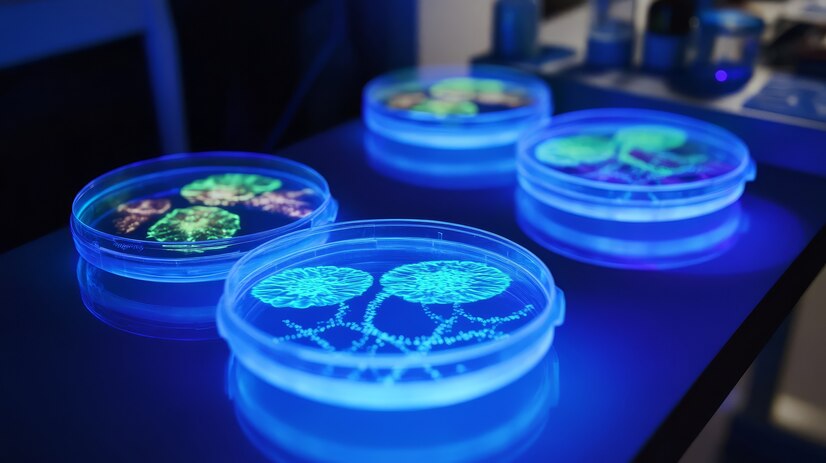Which Resin is Used for Protein Purification?

Protein purification is a critical step in the field of biochemistry and biotechnology, enabling scientists to isolate specific proteins for various applications, including drug development, diagnostics, and research. One of the most widely used methods for protein purification is affinity chromatography, with Protein A chromatography resin being a standout option for purifying antibodies. This article delves into the significance of Protein A chromatography resin, its advantages, applications, and why it is the preferred choice for protein purification.
Understanding Protein A Chromatography Resin
Protein A chromatography resin is designed to exploit the specific affinity between the Fc region of antibodies and the Protein A ligand. Protein A is a bacterial protein derived from Staphylococcus aureus, known for its strong binding capacity to the Fc portion of immunoglobulins (IgG). This property makes Protein A resins highly effective for isolating antibodies from complex mixtures, such as serum or cell culture supernatants.
The use of Protein A resins simplifies the purification process. When a sample is passed through a column containing Protein A resin, antibodies present in the sample bind to the resin while other proteins and contaminants flow through. After washing away unbound materials, the bound antibodies can be eluted using specific buffers that disrupt the interaction, allowing for the collection of purified antibodies.
Advantages of Protein A Chromatography Resin
High Specificity and Affinity: One of the primary benefits of Protein A chromatography resin is its high specificity for antibodies. The strong affinity for the Fc region allows for efficient capture and purification, resulting in high yields of pure antibodies.
Versatility: While originally designed for IgG, Protein A resins can also bind other immunoglobulin subclasses, such as IgA and IgM, albeit with reduced affinity. This versatility enables researchers to adapt the technique to different types of antibodies, making it a valuable tool in various research and therapeutic applications.
Ease of Use: The protocols for using Protein A chromatography resin are generally straightforward, allowing researchers to achieve purification with minimal hands-on time. The process typically involves loading the sample, washing, and eluting, which can be automated for high-throughput applications.
Scalability: Protein A chromatography is suitable for both small-scale research applications and large-scale industrial processes. This scalability makes it ideal for laboratories transitioning to commercial production, ensuring consistent results across different scales.
High Purity and Yield: The use of Protein A resins often results in highly purified antibody preparations, with minimal contaminants. This high level of purity is crucial for applications requiring stringent quality standards, such as therapeutic antibody production.
Applications of Protein A Chromatography Resin
Monoclonal Antibody Production
One of the most prominent applications of Protein A chromatography resin is in the purification of monoclonal antibodies. The ability to achieve high purity and yield in a single step makes Protein A resin an essential tool in monoclonal antibody production.
Therapeutic Antibodies
The pharmaceutical industry relies heavily on Protein A resins for the production of therapeutic antibodies. Given the strict regulatory requirements for biopharmaceuticals, the high purity obtained through Protein A chromatography is vital. Additionally, the ease of scaling up the process allows for efficient production of therapeutic proteins.
Research and Development
Researchers utilize Protein A chromatography resin to isolate antibodies for various studies, including drug development, immunoassays, and basic research on protein interactions. The ability to obtain purified antibodies quickly facilitates experiments and accelerates the research process.
Diagnostics
In diagnostics, purified antibodies are crucial for developing assays and tests, such as ELISA (enzyme-linked immunosorbent assay) and Western blotting.
Considerations When Using Protein A Chromatography Resin
Binding Conditions
To maximize the efficiency of Protein A chromatography resin, it’s essential to optimize the binding conditions, including pH and ionic strength. Typically, a binding buffer with a pH of around 7 to 8 is ideal for antibody binding. Researchers should consider the specific requirements of their samples to ensure optimal binding and purification.
Elution Strategy
The elution strategy used for Protein A resins can impact the yield and functionality of the purified antibodies. Commonly, low pH buffers (such as glycine or citric acid) are used to disrupt the antibody-resin interaction. However, this can denature sensitive antibodies. Therefore, alternative elution strategies, such as using imidazole or salt gradients, may be employed for sensitive applications.
Regeneration and Reusability
Protein A chromatography resins are designed to be reusable. Routine cleaning with appropriate buffers will extend the lifespan of the resin and reduce overall costs.
Compatibility with Other Techniques
While Protein A resins are highly effective for antibody purification, researchers should consider how this technique integrates with other purification methods. For instance, combining Protein A chromatography with size-exclusion chromatography or ion exchange chromatography can enhance overall purity and yield, especially for complex samples.
Conclusion
Protein A chromatography resin stands out as an essential tool in the protein purification landscape, particularly for isolating antibodies. With its high specificity, ease of use, and scalability, it serves a wide range of applications in research, diagnostics, and therapeutic production. As the demand for high-quality antibodies continues to grow, understanding the advantages and applications of Protein A resins will empower scientists and researchers to enhance their purification strategies effectively.
By leveraging the unique properties of Protein A chromatography, researchers can streamline their workflows, achieve superior purity, and ultimately contribute to advancements in biotechnology and medicine. Whether in a research lab or a large-scale production facility, the effective use of Protein A chromatography resin is key to unlocking the full potential of protein purification.
Now, when should we drink protein shake before or after workout? There is a huge debate over this topic, and many people want a clear answer! Let’s read this article to know more about pre and post-workout.





